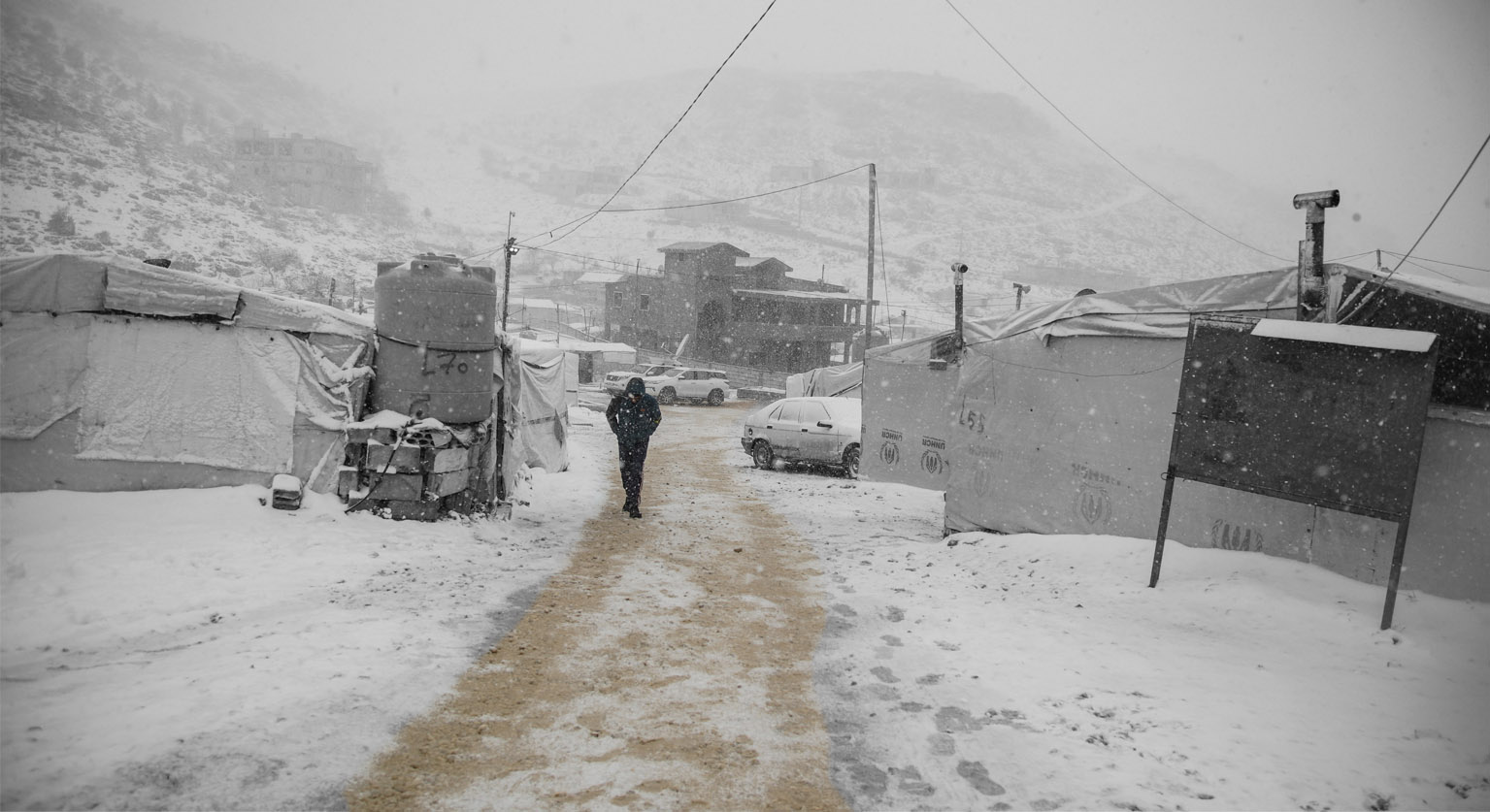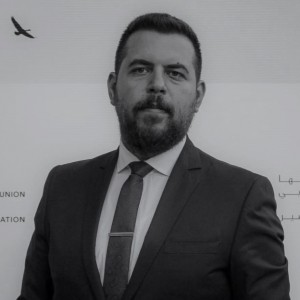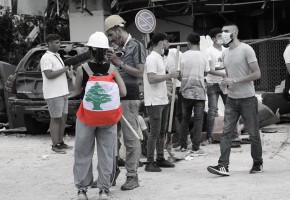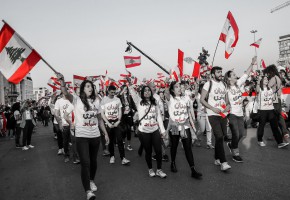
Jad Shahrour

Syrian Refugees: Scapegoat of Repressive Regimes – Jad Shahrour
For every repressive security regime, there exists a political and economic scapegoat. Following the outbreak of the Syrian revolution in 2011, the types of political and economic scapegoats employed by repressive regimes expanded to include the issue of asylum. The Syrian refugee has suffered under their regime and during the war and has faced hardships in host countries such as Lebanon, Turkey, Jordan, Egypt, and many European nations that have restricted their entry. Hate speech created a hostile environment against refugees in these countries. All media attempts to address the refugee issue in Egypt and Jordan have failed. In Turkey, for example, thousands of videos continue circulating in which citizens express their political, social, and economic anger toward Syrians. Media outlets in these countries often address the refugee issue in a racist and socially exclusionary manner without mentioning its underlying causes. This racially biased depiction perpetuates a narrative that describes the problem from political, social, and economic perspectives.
Lebanese Media Against Syrian Refugees
Hate speech against Syrian refugees has become a political scapegoat to justify Lebanon's financial crisis. The discourse is mainly driven by certain politicians, political analysts, media platforms, newspapers, and TV channels owned by families associated with the ruling regime.
In April of last year, hate speech against Syrian refugees quickly dominated various media and social spheres within less than a week, including news bulletins and online activities on social media platforms, particularly Twitter. Online news outlets played a significant role in disseminating these narratives. Among these stories were reports accusing Syrian children of causing chaos in downtown Beirut by playing in a public water fountain in Samir Kassir Square. Another account shared images of walls in a southern Lebanese village bearing "ISIS" slogans, falsely attributing them to Syrian refugees. However, it was later revealed that the graffiti was done by Lebanese individuals from the same village.
I consider one particular report a template readily used by any party seeking to attach accusations of terrorism. It involved the presence of laptops with a group of young people who were working in electronic maintenance and software programming.
Today, Syrian refugees face the mechanisms of racist media, beginning with programs that stereotype Syrian women, particularly concerning their marital decisions, and extending to issues of crime and terrorism.
Furthermore, children are depicted in ways that violate professional media ethics and standards. After every explosion, there is always a torn identification document of a Syrian person found at the blast site. The numerous examples necessitate more than an article, perhaps an extensive research paper comprising no fewer than 100 pages, to address the issue comprehensively.
The Banking System Against Refugees as Well
The Lebanese system has used the refugee issue on multiple levels, employing hate speech from its politicians as a tool and a means to attract financial support from entities and donor governments. For instance, news bulletins have circulated stories suggesting that Syrian refugees receive assistance in dollars from the banks while Lebanese citizens struggle to secure their daily needs. The reality, however, is that the banking system, influenced by the hate discourse promoted by the ruling regime and its media, has attempted to divert attention from its shortcomings by pitting Lebanese citizens against Syrian refugees. In numerous media statements, the UNHCR in Lebanon has clarified the nature, value, and method of aid distribution in Lebanese pounds.
The Syrian refugee issue is not merely political, economic, or social. Its cultural nature is tied to accepting the other, and it serves as the starting point for all hate speech between citizens and refugees, ultimately becoming a political language skillfully employed by the ruling regime.
The Refugee Issue: A Cultural Battle
Ironically, the Lebanese media itself, which airs Syrian TV series and profits from them, dedicates some news reports to portraying Syrian refugees in Lebanon as a economic and social threat and the primary cause of terrorism. It is a cultural problem in the Lebanese mentality, stemming from a class perspective, evolving into a racist discourse that incites against refugees, turning them into real victims. They are victims of fleeing their own country's regime and war first and victims of racism and hate speech in host countries. We accept the impoverished Syrian in a 7-star TV series but reject them in our daily lives. We need the Syrian builders to built the waterfront facades, yet we disdain them from a classist standpoint. We want Syrian refugees to attract donor funds, yet we insult them in our daily conversations. This outdated system disdains its citizens, so how could it not Syrian refugees?
Resources:
1. Hate Speech Against Refugees in Turkey... Daily Violations in the Lives of Syrians
2. Syrian Refugee Issues in the Jordanian Media
3. Egyptian Media: Testing Hatred Towards Syrian Refugees
4. Official Account of Joseph Abu Fadel "Tweet"
5. Report by MTV Lebanese Channel
7. Lebanese Media Immersed in the Quagmire of Racism Against Syrians
8. News from "Here Lebanon" Website
9. Tweet from "Here Lebanon" Website
10. Writings on the Walls of the Municipality of Taybeh... ISIS is Ready?
11. Details of the Arrest of 3 Syrians in ArabSaliml
14. Report by MTV Lebanese Channel
Recent publications

ANND Newsletter January 2026 - From Davos to the UPR: Between Promises, and Accountability
Related publications


